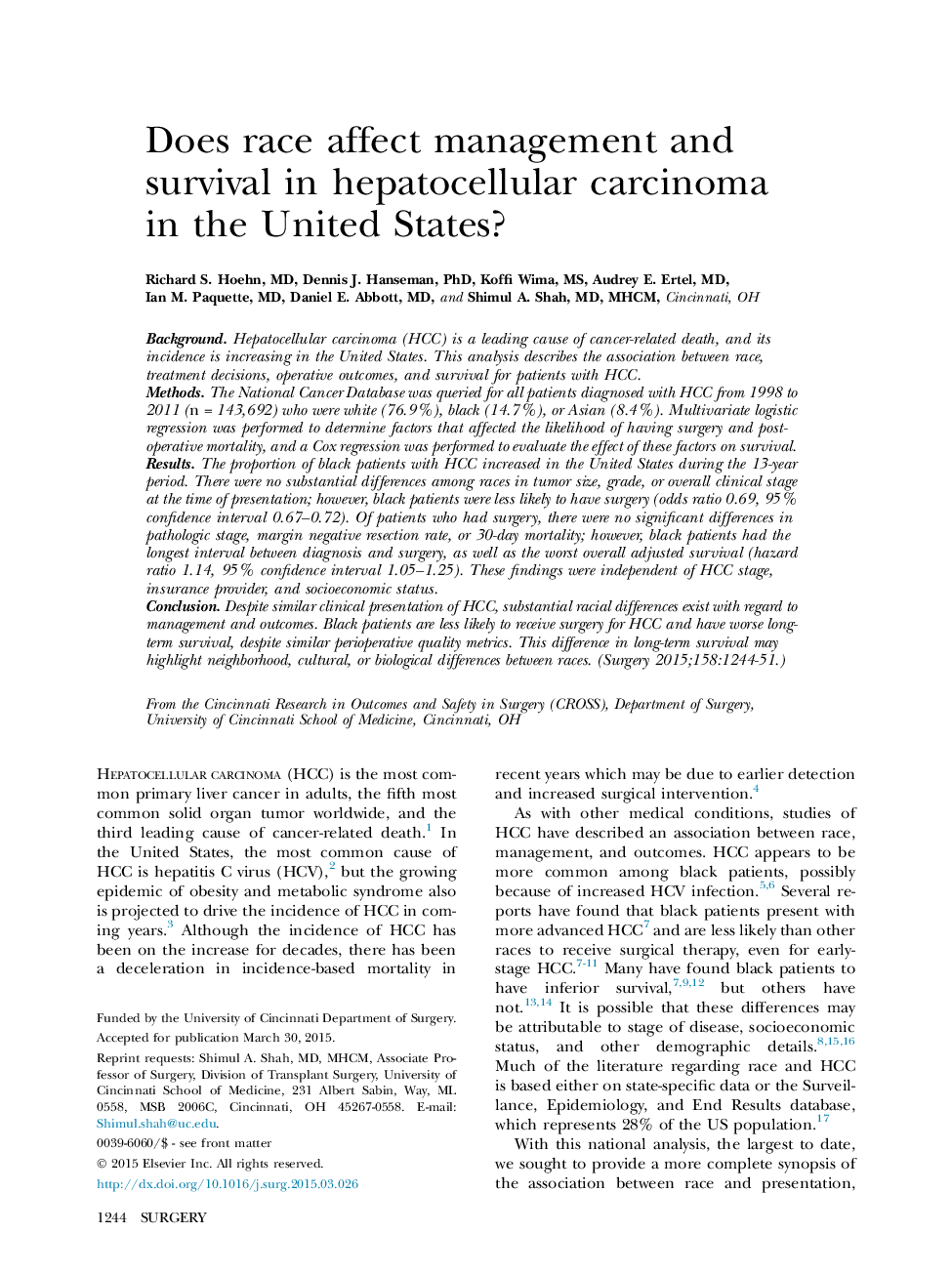| Article ID | Journal | Published Year | Pages | File Type |
|---|---|---|---|---|
| 4306760 | Surgery | 2015 | 8 Pages |
BackgroundHepatocellular carcinoma (HCC) is a leading cause of cancer-related death, and its incidence is increasing in the United States. This analysis describes the association between race, treatment decisions, operative outcomes, and survival for patients with HCC.MethodsThe National Cancer Database was queried for all patients diagnosed with HCC from 1998 to 2011 (n = 143,692) who were white (76.9%), black (14.7%), or Asian (8.4%). Multivariate logistic regression was performed to determine factors that affected the likelihood of having surgery and postoperative mortality, and a Cox regression was performed to evaluate the effect of these factors on survival.ResultsThe proportion of black patients with HCC increased in the United States during the 13-year period. There were no substantial differences among races in tumor size, grade, or overall clinical stage at the time of presentation; however, black patients were less likely to have surgery (odds ratio 0.69, 95% confidence interval 0.67–0.72). Of patients who had surgery, there were no significant differences in pathologic stage, margin negative resection rate, or 30-day mortality; however, black patients had the longest interval between diagnosis and surgery, as well as the worst overall adjusted survival (hazard ratio 1.14, 95% confidence interval 1.05–1.25). These findings were independent of HCC stage, insurance provider, and socioeconomic status.ConclusionDespite similar clinical presentation of HCC, substantial racial differences exist with regard to management and outcomes. Black patients are less likely to receive surgery for HCC and have worse long-term survival, despite similar perioperative quality metrics. This difference in long-term survival may highlight neighborhood, cultural, or biological differences between races.
